Critical Weightlifting Mistakes (As Suggested by 15 Experts)
Author:
Unlock your full potential by engaging with our experts and community! Have questions about your fitness journey or looking for expert advice on weightlifting techniques? Don’t hesitate — leave a comment below and Ihor Shymechko will provide a personalized answer and insights to help you reach your goals.
Torokhtiy is reader-supported. Some links are affiliate links, and we may earn a commission at no extra cost to you. See our disclosure page for details.
Not only do avid beginners do that, but seasoned lifters also make mistakes, sometimes silly ones, when lifting weights.
Such unwise things can hinder their progress, what’s more, they can cause injuries. Thus, it’s crucial to know common mistakes to avoid benefiting from every lifting session without damaging the body. We prepared consistent and thorough research and interviewed reputable certified personal trainers, sports nutritionists, and rehabilitation therapists about the common mistakes beginners, intermediate, and professional lifters do.
Let’s observe this comprehensive interview to know which mistakes to dodge and how to incorporate a proper lifting program to facilitate your performance and omit overtraining and plateau.
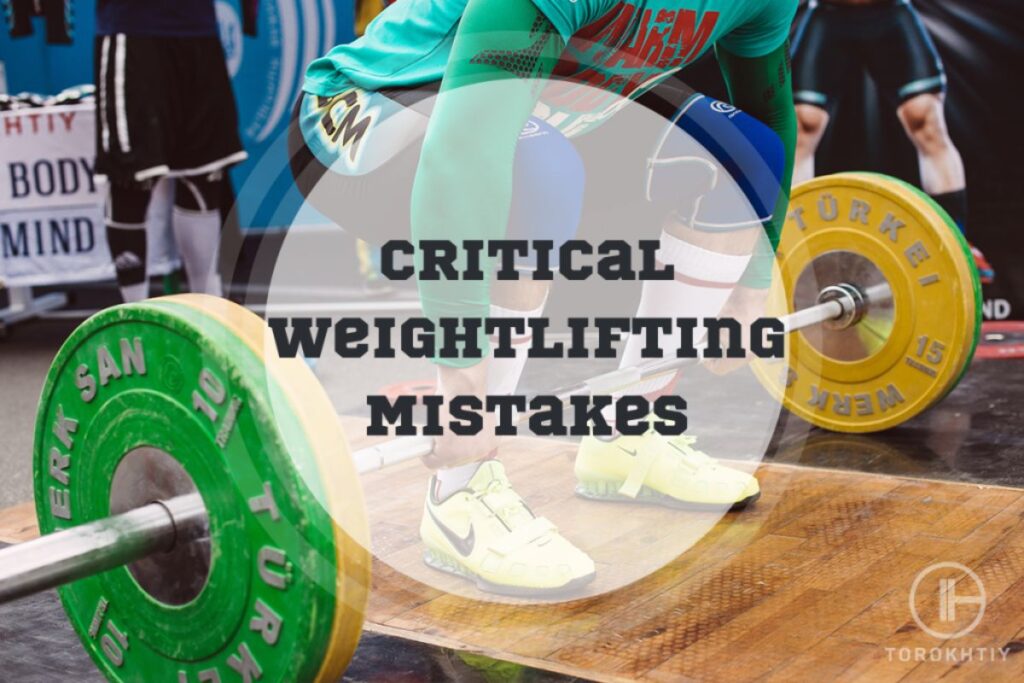
Regular Mistakes Beginners Do While Start Lifting
Having no experience and expertise in lifting weights, most newbies in weightlifting have no idea how to manage their training plan properly to get maximum benefits. That’s why they bump into such mistakes as improper form, lack of mobility work, and progressive overload. However, the most common issues are discussed below.
1. Overtraining
Overtraining can result in muscle fatigue and soreness, decreased performance effectiveness, and an increased risk of injury. It’s important for newbies to know their physical limits and omit to push themselves hard to pull too heavy weights. They need to have rest days between training days and always listen to their bodies. Mary-Ellen Sabat, an ACE-certified personal trainer, health coach, and nutritionist (MS, RDN) from BodyDesigns Ltd. states: “Beginners may often get overly excited about their new workout routine and push themselves too hard without giving their bodies enough time to recover.”
Indeed, another sports expert Deniz Efe, a former Chief of a Governmental Initiative (Cooperation with the Austrian Football Association), a researcher in medical and molecular biotechnology, and the founder of FitnessEquipped.com, also claims that novices are trying to lift too much weight too quickly: “While it’s good to push yourself and increase the intensity of your workouts, suddenly increasing the amount of weight you lift without proper form or technique can lead to injury”. Thus, he says that to prevent it, it’s recommended to start with lighter weights and gradually increase the intensity over time as your strength increases.
2. Neglecting Warm-up and Cool-Down Exercises
Supporting the statement of Mary-Ellen Sabat about the warming-up, we asked Josh Petrawski, a former fitness classes instructor and a bodybuilding competitor, a CEO of Sports & Fitness Exchange, who told us the following point: “Many beginners skip warm-up exercises and cool-down stretching. Failing to warm up properly can lead to muscle strains and other injuries while skipping the cool-down can cause muscle tightness and delayed onset muscle soreness (DOMS)”.
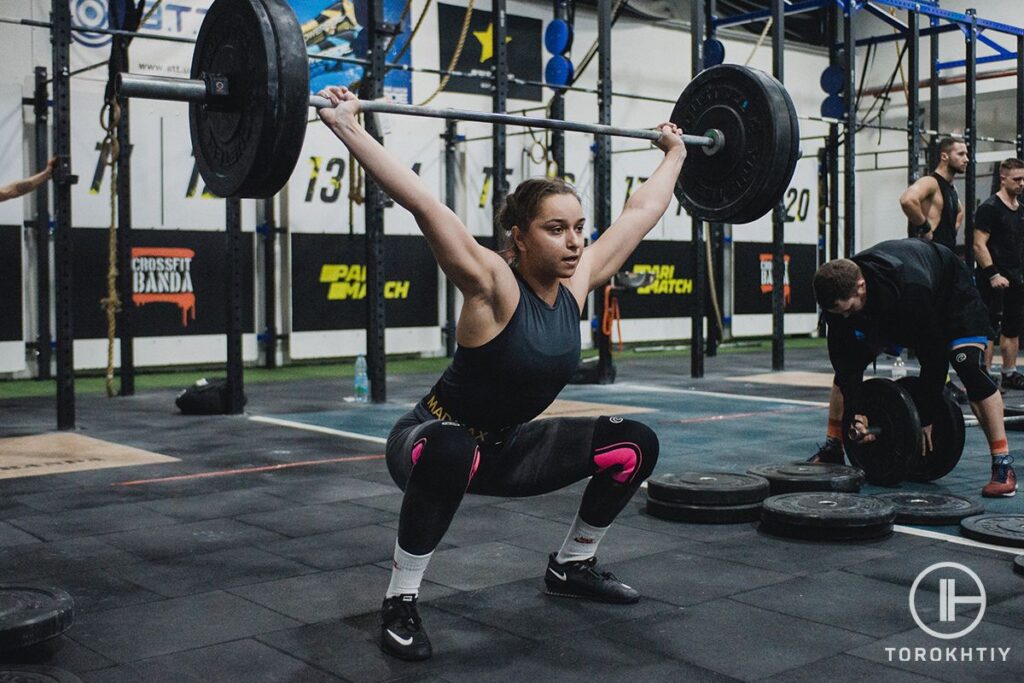
It’s true that not warming up properly can lead to serious injuries. It’s important to warm up your muscles before lifting weights to activate muscles and make the blood flow through the muscle tissues. The same point was also mentioned by the majority of interviewed experts, i.e., Rick Kaselj, BSc in Kinesiology, MS in Exercise Science, the founder and CEO of Exercises For Injuries.
3. Overambitious Lifting
Petrawski and Hannah Shine, the AFA CPT and fitness coach at Hourglass Waist, proved this common mistake. Hanna noted: “Beginners often make the mistake of lifting weights that are too heavy for their current strength level. It’s essential to start with lighter weights and focus on mastering the proper form and technique before gradually increasing the load”. Sure, your training progress should be gradual for your body to adapt and avoid strains.
Being too ambitious about your lifting capabilities also refers to forgetting the correct technique: Jacob Rothman, a sports enthusiast, MIT graduate, and founder and CEO of Perch affirmed this fact: “Newbies need to learn the proper techniques and movement patterns for each lift before adding load. This ensures an athlete lifts safely and efficiently before the load.”
4. Relying on Machines
This is the fact that training machines are helpful for targeting specific muscles. However, newbies forget to engage their stabilizing muscles and do not perform functional movements which can lead to muscle imbalance and increased risk of injury. Again, Josh Petrawski highlighted that including free weights and bodyweight training into their workout schedule can improve overall strength and stability.
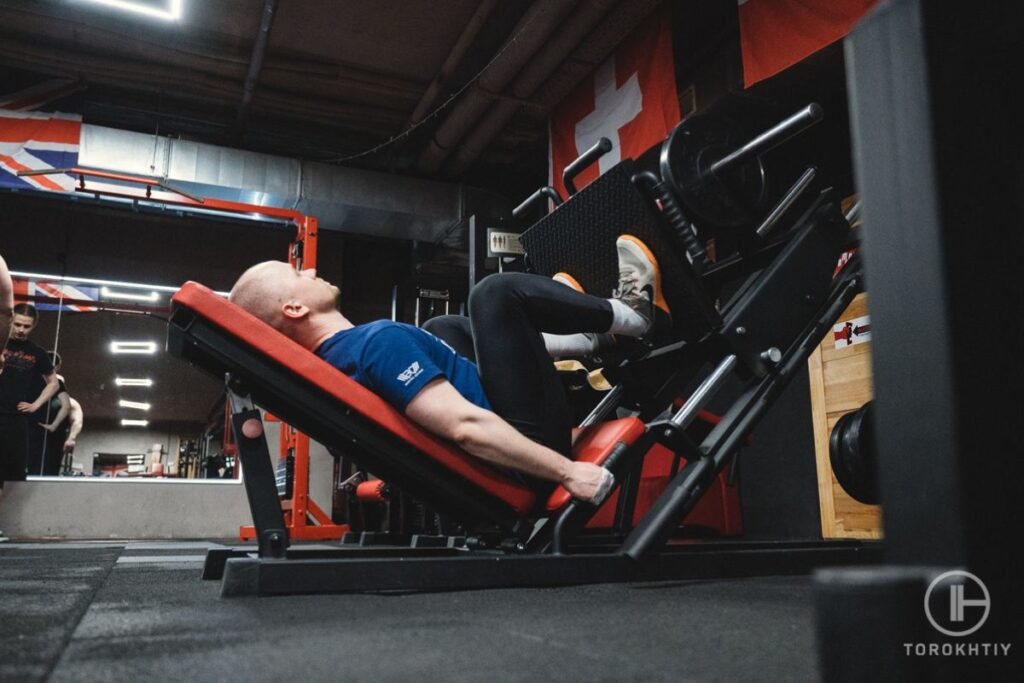
Common Errors for Intermediate Lifters
When an athlete has already adjusted to weightlifting drills, they try not to stop on light weights and hop on lifting much more vigorously. Overtraining and overweighting issues occur regularly in intermediate lifters that overall result from an incomplete range of motion, ignoring accessory work and eccentric training. Let’s see which other mistakes intermediate weightlifters can face in pursuit of bulky weights.
1. Prioritizing Quantity Over Quality
Having sufficient background in weightlifting and knowing the basic technique and following the rules, intermediate-level lifters tend to increase the number of sets and reps, as well as taking much heavier dumbbells and barbells. Tyler Lowe, sport and exercise rehabilitation therapist and founder of Loving Life said: “Intermediate lifters often make the mistake of increasing the volume (i.e., the number of sets and reps) at the expense of form and technique. While increasing volume is a valid method to progress, it must not compromise the quality of the lifts.”
2. Lack of Exercise Variation
It happens quite often that athletes become comfortable with familiar exercises and follow them without incorporating new movements into their routines. This can hinder muscle development and result in imbalances. That’s why diversifying your workout matter – the goal is to achieve comprehensive body strength and avoid a training plateau.
Tonya McIntosh, a NASM-certified personal trainer from TGFFitness explained to us the essence of this mistake: “Continuing the same exercises week after week can lead to plateaus. Periodically change up your routine by incorporating new exercises, changing your rep ranges, and adjusting volume and intensity“.
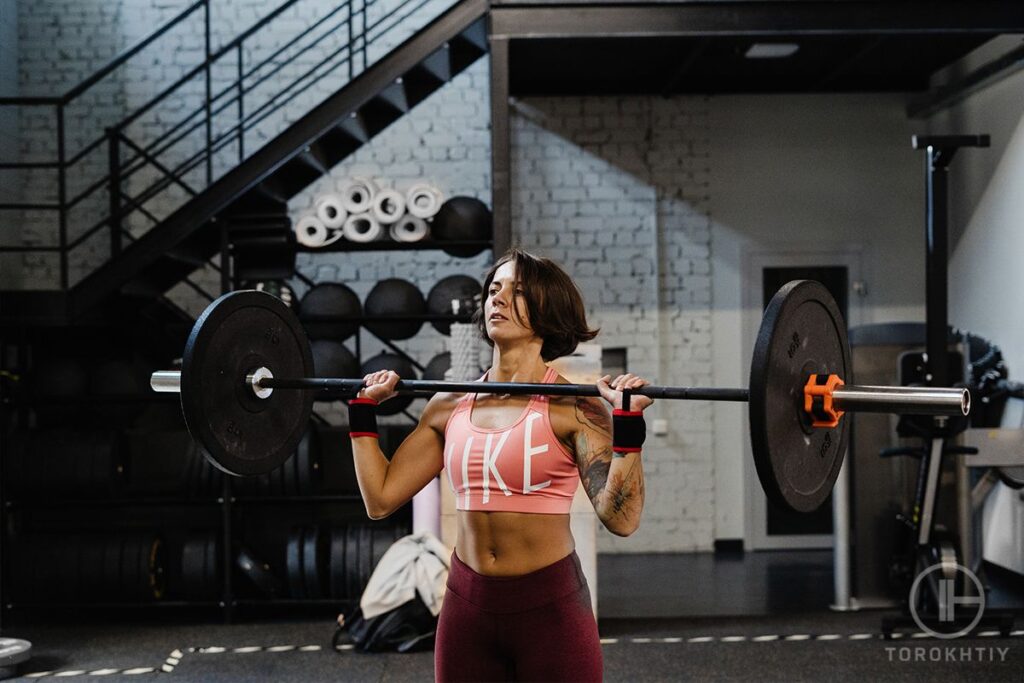
3. Ignoring Progressive Overload
Some lifters are likely to reach a plateau in their progress because of a lack of progressive overload in their lifting workouts. It’s better to increase weights gradually considering the demands of your body. This way you’ll succeed to challenge your muscles and stimulate their growth. Mary Sabat confirmed this statement saying: “This can be achieved by increasing weight, repetitions, or sets over time”.
4. Imbalance Training
The next widespread mistake among intermediate athletes in weightlifting is neglecting the importance of a balanced workout. This point was proved by James Dixon, a lead writer and a certified personal trainer at Fitness Brain, with the words: “Some get so wrapped up in focusing on their favorite muscle groups that they inadvertently create muscle imbalances, which can lead to injuries. Your body is a well-oiled machine, and every part needs to function harmoniously with the rest”.
5. Lack of Mobility and Flexibility
Weightlifting means not only dealing with heavy loads exceeding your capabilities. Weightlifting is also about being mobile and flexible which helps to avoid muscle pains and stiffness. Lack of mobility can restrict the range of motion and hinder proper form, resulting in inefficient workouts. It’s important to incorporate regular mobility exercises, stretching, and foam rolling to maintain optimal joint health and flexibility.
Andrew Lenau, a senior coach, ISSA-certified personal trainer & sports nutritionist from Set for Set, outlined: “Intermediate athletes sometimes focus solely on strength training and neglect mobility and flexibility work. This oversight can lead to restricted movement, increased risk of injury, and hinder their ability to perform specific exercises optimally”.
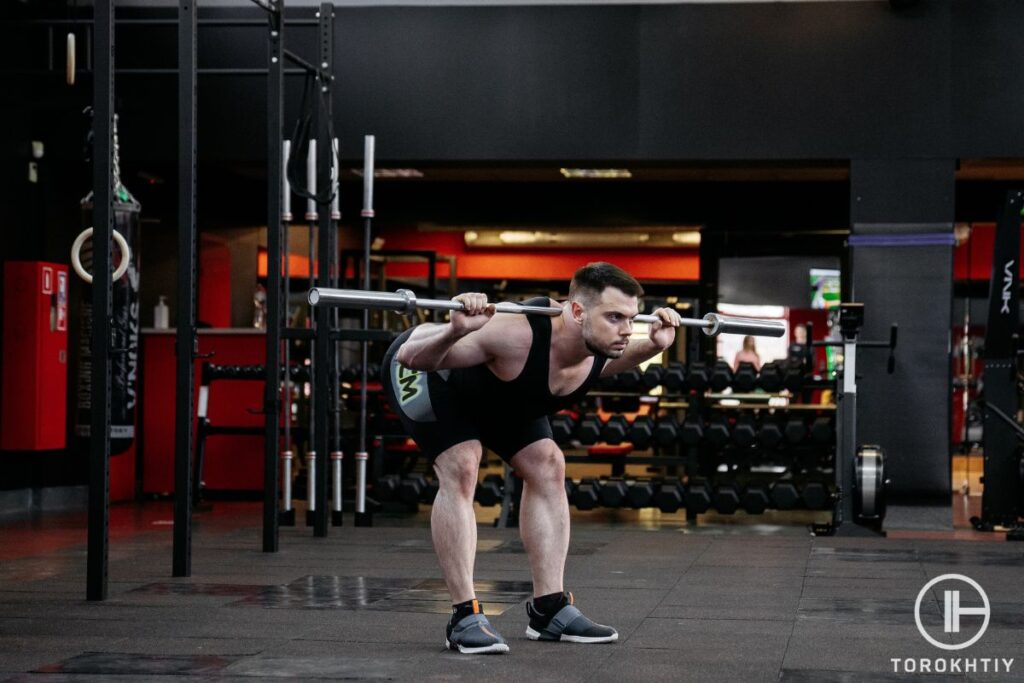
Mistakes Pro Athletes Do in Weightlifting
There’s no surprise that experienced athletes can also do many mistakes in lifting weights, without realizing the outcomes. Some believe they stick to the correct training strategy, while others are confident in their expertise and suppose that they do everything right to gain progress. However, professionalism doesn’t mean anything: they bump into the same mistakes as beginners and intermediate lifters do. Here is the list of some of the widespread errors we noticed during pro lifters’ workouts.
1. Not Focusing on Nutrition
Your training success directly refers to proper nutrition and sleep regime. Many fitness-related specialists support this statement. Andrew White, a certified fitness expert and owner of Garage Gym Pro confirmed: “Pro athletes are often hyper-focused on their workouts, forgetting that nutrition plays a significant role in their performance and recovery.”
Nowlen Cameron, NASM & ISSA Certified Personal Trainer from My Phenom Fitness told us the next thought: “Advanced lifters know that diet plays a crucial role in their performance and recovery. However, many of them still underestimate its importance, failing to monitor their macro and micronutrient intake, or not timing their meals effectively around their workouts. This can limit their progress and recovery”.
While Rick Kaselj stated that seasoned lifters don’t eat enough protein. “Protein is essential for muscle growth and repair. Athletes should aim to eat 1-1.5 grams of protein per pound of body weight each day”.
Follow us!
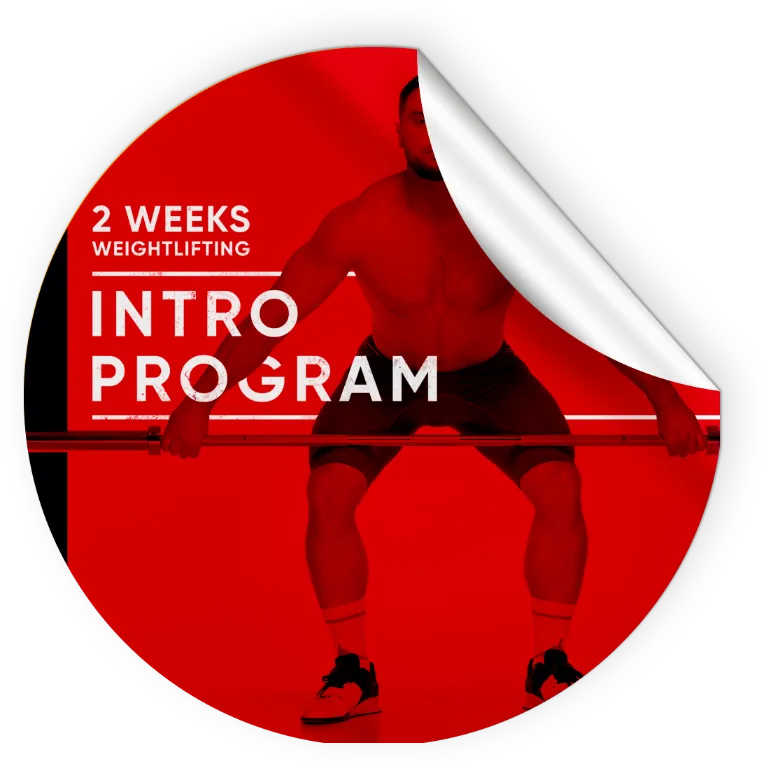
Free!
Get a 2-week Weightlifting Program as a bonus for the subscription to kickstart your training plan!

Free!
2. Neglecting Recovery
Quite an interesting thought concerning this mistake was presented by Keith Sparks, a sports/rehab-based chiropractor who owns the ICT Muscle & Joint Clinic. She explained this point through neurological connections, providing the following fact: “When training above a person’s neurological capacity, most lifters lose intra-abdominal and intra-pelvic pressure. This pressure is what stabilizes the core musculature from within to allow the shoulders and hips to maintain their dominance as prime movers. The inability to maintain intra-abdominal pressure throughout a movement which causes neurological overactivation leading to injury”.
In order to be able to restore strength and build muscles, it’s crucial to have enough rest. Andrew Lenau emphasized: “Without adequate rest and recovery, the risk of overtraining increases, which can lead to fatigue, decreased performance, and even potential injuries.”
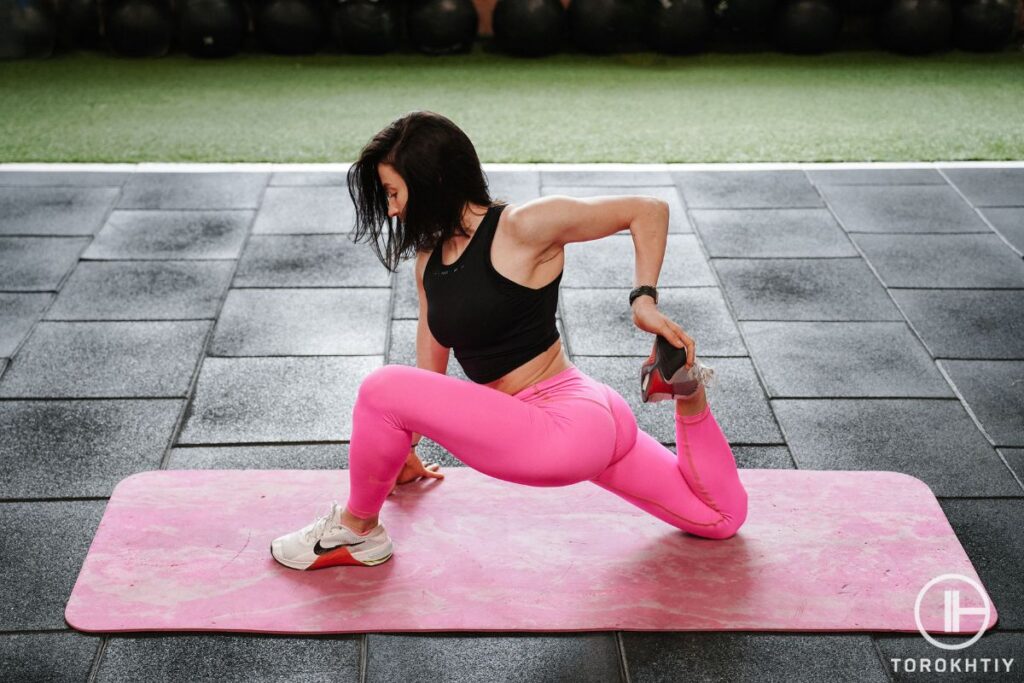
3. Ego Lifting
Seasoned sportsmen tend to lift extremely heavy weights to impress others and satisfy their egos. However, this can hinder their training form and increases the risk of injury. This aspect also relates to the psychological nature of every lifter who strives to be better than others. So, he proves it by pulling bulky barbells.
Petrawski added regarding this phenomenon: “Advanced athletes attempt to lift impressively heavy weights to prove their strength. Although, this worsens their form and increases the risk of injuries. It’s essential to prioritize proper technique and form over the amount of weight lifted.
4. Relying on Experience
Deniz Efe explained this mistake in short: “Even if you have many years of experience under your belt, the form should always remain a priority when exercising with weights – even if that means reducing the amount of weight lifted during a particular set.”
Sometimes it seems that professional lifters feel superior to others, showing they know how to treat weights properly. But, there are cases that finding a reputable coach, or training mentor and following their program, is a decent way to improve your technique and become better with each drill. Despite being an experienced athlete who knows almost everything about weightlifting.
5. Neglecting Exercise Variety
Considering the opinion of Michael Hamlin, a personal trainer and founder of EverFlex Fitness, about what lifters should do to promote their performance, he pointed out the following: “Advanced athletes sometimes repeat the same exercises. This can stop progress and limit muscle development. To overcome this, challenge your body with new exercises, varying rep ranges, and intensity.”
Marshall Weber, CPT and gym owner of Jack City Fitness, supported this statement by offering the next thing: “Incorporating cardio into their weight lifting exercises. can warm up muscles and increase blood flow with a 5-10 minute cardio exercise before you start lifting weights. This will lead to better gains and a more productive workout.”
To conclude, considering the viewpoints of reputable trainers and fitness experts, these weightlifting mistakes among lifters of all levels can prevent them from further progress, getting a training plateau, and result in specific injuries, and worsen general health. It’s vital to master the proper form and technique, starting from lighter loads, and moving to heavier weights. Alongside the regular workouts, it’s important to incorporate different training machines, free weights, and your own body weight to get effective training.
Also read:
Why Trust Us?
With over 20 years in Olympic weightlifting, strength training, nutrition coaching, and general fitness our team does its best to provide the audience with ultimate support and meet the needs and requirements of advanced athletes and professional lifters, as well as people who strive to open new opportunities and develop their physical capabilities with us.
By trusting the recommendations of our certified experts in coaching, nutrition, and sports training programming, as well as scientific consultants, and physiotherapists, we provide you with thorough, well-considered, and scientifically proven content. All the information given in the articles concerning workout programming, separate exercises, and athletic performance, in general, is based on verified data.
The product testing process is described in more detail here.
Author: Ihor Shymechko
Pro Olympic Weightlifter, Coach
Best Results: Snatch – 208 kg,
C&J – 240 kg
Ihor has been a professional weightlifter since 1996, boasting over two decades of competition experience. His notable achievements include clinching the European Championship in 2009 and securing a silver medal in the 105kg division at the Senior World Championships in 2011. Ihor represented his country in the 2008, 2012, and 2016 Summer Olympics. After retiring from competitive weightlifting, he transitioned to coaching, leveraging his vast experience to guide athletes who now compete on both national and international stages.



Still have questions after reading our article? Unlock your full potential by engaging with our experts and community! Don’t hesitate — leave a comment below and Ihor Shymechko will provide a personalized answer and insights to help you reach your goals.